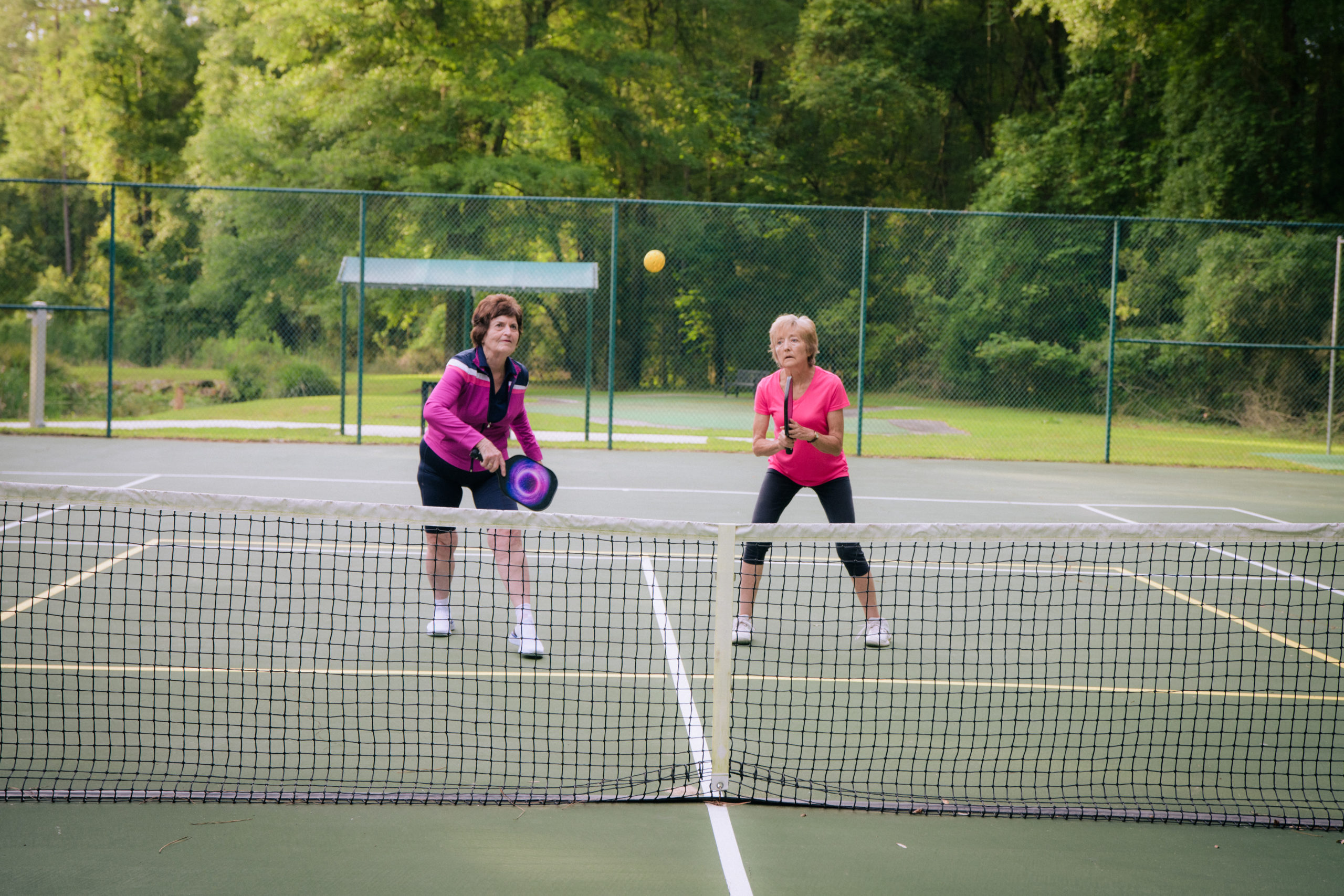
By David Burch
Not long ago, it was common belief that older adults didn’t need to exercise — retirement was time to sit back and enjoy life. Another widespread idea was that exercise was actually harmful for people with certain ailments — “I can’t exercise because I have heart disease.” Now, more people than ever, at all ages, are exercising. So, does age-old wisdom prevail, or is exercise important for senior adults? If it is important, how much is enough?
First, let’s put to rest any thoughts that some people should not exercise. Previous generations who did physical labor on the farm and then became inactive at retirement often found that their health rapidly declined. The benefits of continued physical activity have been proven again and again. In fact, each ACV member over age 60 must get a physician’s okay before exercising at Copeland Community Center, and I have never received a doctor’s note forbidding someone from exercising. Doctors frequently give guidelines, but they always encourage activity. Exercise literally improves everything — strength, endurance, flexibility, balance, mental clarity and more.
Many people don’t realize that there is a direct connection between strength and balance. Those who exercise tend to have faster reflexes, which aid in driving safely and catching yourself from falling. Exercise can prevent disease or slow its progression. People who have kept up a regular exercise routine recover faster from surgery. So, how can you know what exercise is best for you and how much is enough?
There are right and wrong ways to go about exercising at any age and with any health condition. First, talk to your physician. He will be able to best advise you on avoiding certain exercises that could be harmful with your specific health conditions. He may advise you to see a physical therapist or exercise physiologist, who can show you which exercises to do, how to do them properly, and explain how each exercise will benefit you. (Helping you lift your foot into the car, helping you rise from a chair, etc.)
What is the best exercise for senior adults? The one that they will do! You should find something that you enjoy. If you are bored, it’s much harder to stick with it. Other than that, the best all-around exercise for seniors is aquatics. Exercising in water is safer because your body weight is supported. Every movement is met with consistent resistance, and you can move in all directions. A heated pool (89°) is best because it encourages flexibility, preventing muscle strain, and is particularly beneficial for arthritis sufferers. Here at ACV, we have a lift that allows people with limited mobility access to the indoor heated pool. Some who have used walkers for years have experienced improved mobility after spending time in our pool.
For senior adults, I believe the goal should be functional fitness, in order to feel your best and maintain your independence. When beginning a new physical activity, the key is to start slowly and gradually build up. I start older adults on the stationary bike for two minutes and then increase it each session. Some people think two minutes is a waste of time and want to do more, but I’m trying to prevent muscle soreness the next day. Two minutes of exercise is better than none at all. I tell people that they have the rest of their life to increase.
It’s good to be consistent in how often you exercise; at least three days a week is best. Once you have established a routine, set a minimum workout that you will do each session, (possibly going back to two minutes on the bike) even when you don’t feel like it. Many times, people don’t exercise at all on days they don’t feel “up to par,” then it becomes hard to get back to it when they are feeling good. As long as you aren’t actually ill, it is good to do some exercise. Often people report that they feel better after a small amount of activity.
Listen to your body. It will tell you if you are doing too much. Muscle fatigue is normal, but if you experience stabbing pain, joint pain, shortness of breath, chest pain, dizziness, or confusion, stop exercising immediately and seek medical attention. Ask advice on how to begin exercising safely again.
I see the impact that consistent exercise has on senior adults every day. I’ve seen people with Parkinson’s disease slow its progression. Several of our members have been told by their doctors that their exercise routine has prevented a heart attack or stroke. The benefits of physical activity cannot be overstated. Even though every exercise is not right for everybody, everybody at any age can benefit from exercise.
This article is intended as general advice and should not be viewed as legal or financial advice. For your individual situation, please consult a financial advisor or estate planning attorney.
Click here for more Village Streams articles.
About the author: David Burch has been the Director of Copeland Community Center, Advent Christian Village’s wellness and fitness center, since 2001. He is an exercise physiologist and received his degree from the University of Florida. During his training, he enjoyed working with the Gator athletes, but he also discovered his love for senior adults. David teaches exercise classes and develops customized exercise programs for each CCC member.